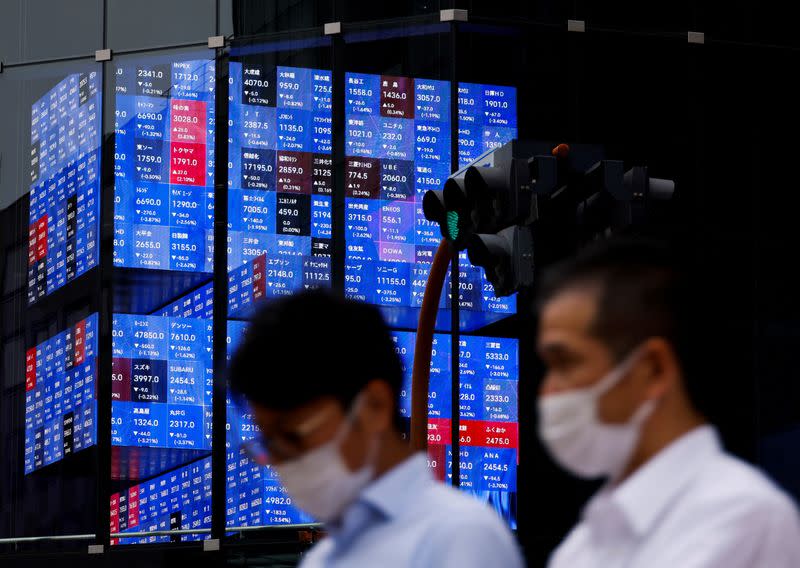World stocks steadied near a two-year low and Japan's yen was pinned at around 1998 levels on Thursday, as investors braced for U.S. inflation data likely to shape the size of the Federal Reserve's next interest rate hike.
Global markets have suffered a torrid few weeks but there was brief respite in Europe as the region's main share markets and Wall Street futures both stabilised after six days in the red.
The seemingly-unstoppable dollar took a breather too, while bond traders were keeping their powder dry, wary that the Bank of England is due to end emergency gilt market stabilisation measures on Friday.
Wall Street futures and Europe's region-wide STOXX 600 (.STOXX) index had clawed into positive territory for the day. The S&P 500 (.SPX) has fallen over 5% in the last 5 days though and Europe (.STOXX) is down more than 4%.
Markets are increasingly worried that rapidly rising interest rates will lead to recession. Data confirmed German harmonised inflation was 10.9% y/y in September and almost 10% in Sweden, but all eyes are on U.S. consumer price inflation data due at 1230 GMT.
Paul O'Connor, Head of Multi-Asset at Janus Henderson Investors, said the question investors have is whether central banks like the Fed are getting close to the end of their interest rate hikes.
Interest rate hikes take a year to 18 months to fully take effect. As a result "it is quite plausible that around the end of the year, the central banks declare a pause... labour markets will be cooling and housing markets will be falling."
The headline U.S. CPI figure is expected to have slipped back two tenths of a percentage point to a still-bruising 8.1%, but the 'core' number which strips out the more volatile components is forecast to rise again to 6.5% from 6.3%.
Minutes of the Fed's latest policy meeting released on Wednesday had showed many officials "emphasized the cost of taking too little action to bring down inflation likely outweighed the cost of taking too much action".
Several policymakers did stress, however, that it would be important to "calibrate" the pace of further rate hikes to reduce the risk of "significant adverse effects" on the economy.
Treasury yields were choppy in Europe. The U.S. 10-year benchmark yield initially ticked up to 3.923% but then dropped back to 3.894% with most of the equivalent European yields down a touch too.
Markets lay 90% odds for another 75 basis-point Fed rate hike in November, versus 10% probability of a half-point bump.











